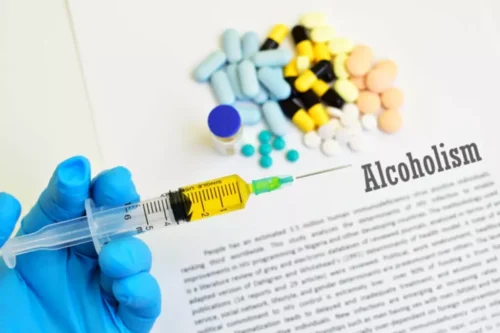
Data from 10,030 participants were extracted from a de-identified dataset for analysis, and 9724 participants who had baseline data on alcohol consumption were included in our cohort. After excluding participants without data on serum Cr at baseline and the sixth phase of follow-up, data from 5729 participants were available for analysis. This is the area at the back of your abdomen, under your ribcage on both sides of your spine. This pain may be felt as a sudden, sharp, stabbing pain or more of a dull ache.

Browse By Category

In addition, the substantial increase in MDA and the decrease in tGSH levels and SOD, and CAT activities in the MT-500 and MT-1000 groups show that oxidative stress was markedly induced in liver tissue compared to the heart tissue-treated groups. However, some studies have emphasized that the risk of liver impairment during MT treatment is relatively low [3]. A recent study showed that 500 and 1000 mg/kg metamizole doses caused moderate liver damage [15].
- At first, you might not have any symptoms of kidney damage from regular alcohol consumption.
- Hence, we sought to examine the association of alcohol consumption with the change and rapid decline in kidney function over 12 years in a South Korean population-based cohort study.
- Preventing the risk of kidney disease entails taking care of your heart and weight.
- Some enzymes that are necessary for ethanol metabolism, such as alcohol dehydrogenase, CYP2E1, and CYP24A1, have been found in the kidneys [22,23].
Medications to Avoid or Adjust If You Have Chronic Kidney Disease

Alcohol can produce urine flow within 20 minutes of consumption; as a result of urinary fluid losses, the concentration of electrolytes in blood serum increases. These changes can be profound in chronic alcoholic patients, who may demonstrate clinical evidence of dehydration. The few studies focusing on alcohol’s direct effects on perfusion in human kidneys suggest that regulatory mechanisms retain control over this component of kidney function despite alcohol consumption.
Treatments for acute kidney injury
- Points and bars represent beta coefficients and 95% confidence intervals, respectively.
- Furthermore, approximately 10% of ingested ethanol is excreted by the kidneys in its original form [21].
- The disease can also affect blood flow to the kidneys and cause them to be less effective in filtering blood.
- Prolonged rapid, shallow breathing results in excessive loss of carbon dioxide and decreased blood acidity (i.e., alkalosis), which in turn activates an enzyme that enhances glucose breakdown.
Heavy drinkers are more likely to develop high blood pressure than non-drinkers. In addition to contributing to the development of high blood pressure, alcohol also has the potential to affect certain high blood pressure medications. Promote healthy kidney function and blood pressure by limiting the amount of does alcohol affect your kidneys alcohol you consume. A high alcohol intake may also increase the risk of other problems that can hurt the kidneys, such as a urinary tract infection, high blood pressure, and long-term kidney damage. Having an occasional glass of alcohol may not cause any harmful effects if your kidney functions regularly.
Watercress Nutrition
- It’s important to understand the reason for your discomfort in case it’s a sign of something serious.
- In view of the protective effect of moderate alcohol consumption on cardiovascular diseases, we consider that light-to-moderate alcohol consumption may not have adverse effects.
- Alkalosis was present in 71 percent of patients with established liver disease in 11 studies, and respiratory alkalosis was the most common disturbance in 7 of the studies (Oster and Perez 1996).
- Sex, age, primary diseases, initial GFR, individual differences, and dietary structure can all influence the results of a study.
However, recent studies have demonstrated that its activity is decreased by ROS and lipid peroxidation with the consumption of ethyl alcohol [22,41,52]. However, the effect of ethanol on renal tubule function is not limited to sodium ions. Diuresis by inhibiting vasopressin release [53] and impairing acid secretion have also been discovered in alcoholics. In addition, hypokalemia, hyponatremia, hypomagnesemia, hypocalcemia, hypophosphatemia, and metabolic acidosis mixed with volume-contracted metabolic alkalosis are common in long-term alcohol consumption.
TAKE A FREE KIDNEY HEALTH CLASS
Many patients with CKD often have other comorbidities, such as diabetes, coronary heart disease, stroke, and other serious chronic diseases. For these patients, drinking alcohol may further increase their risk of death. In addition, alcohol consumption can contribute to volume overload, hypertension, and electrolyte disorder between hemodialysis sessions in hemodialysis patients, which also should not be ignored. So, alcohol consumption can be a double-edged sword for patients with CKD, and any policy regarding alcohol consumption for them must be very cautious. Second, the proteinuria detection and diagnosis of CKD can also affect the credibility of the conclusion.

Fight kidney disease. Save lives. Donate today!
As is known, an increase in serum TpI is an important indicator of myocardial damage [27]. Interestingly, the metamizole group’s serum TpI levels were almost the same as those in the HG, suggesting no severe damage to the cardiac muscles. In turn, heavy alcohol consumption is implicated in the development of these cardiac diseases, with chronic, heavy drinkers at higher risk than those who consume small to moderate amounts of alcohol. As an example, Puddey and colleagues (1985) evaluated the effects of hormones that regulate kidney function. Their results show not only how alcohol disrupts homeostasis but also how the body reacts to restore it. Following moderate alcohol consumption—about 24 oz—of nonalcoholic beer with 1 milliliter of alcohol per kilogram of body weight added, the investigators noted several effects.
Alcoholic Cardiomyopathy: Another Potential Confounder
Although the researchers do not analyze the reasons why people are lost to follow-up, we cannot ignore the possibility that some patients were diagnosed with CKD and had begun regular medical treatment in another medical center. We also realize that previous studies did not include an adequate number of heavy drinkers, especially female heavy drinkers. Therefore, the relationship between heavy alcohol consumption and CKD may be affected by this sampling bias [16,79,117]. Many studies have confirmed that unhealthy diet and lifestyle can cause various diseases, and heavy alcohol consumption is one of the important factors [66]. As an influential factor of many chronic diseases, alcohol consumption has been increasingly studied in recent years.
- It is hoped that future investigations will focus on this important subject area.
- Overall and subgroup analyses of the association between baseline alcohol consumption and decline in kidney function over 12 years in fully adjusted linear regression model.
- The National Kidney Foundation (NKF) is the largest, most comprehensive, and longstanding patient-centric organization dedicated to the awareness, prevention, and treatment of kidney disease in the U.S.
- A compromised diluting ability has important implications for the management of patients with advanced liver disease.
- On the contrary, metamizole is banned in some countries due to its severe side effects, such as agranulocytosis [7].
- The kidneys continuously perform their tasks of purifying and balancing the constituents of the body’s fluids.

